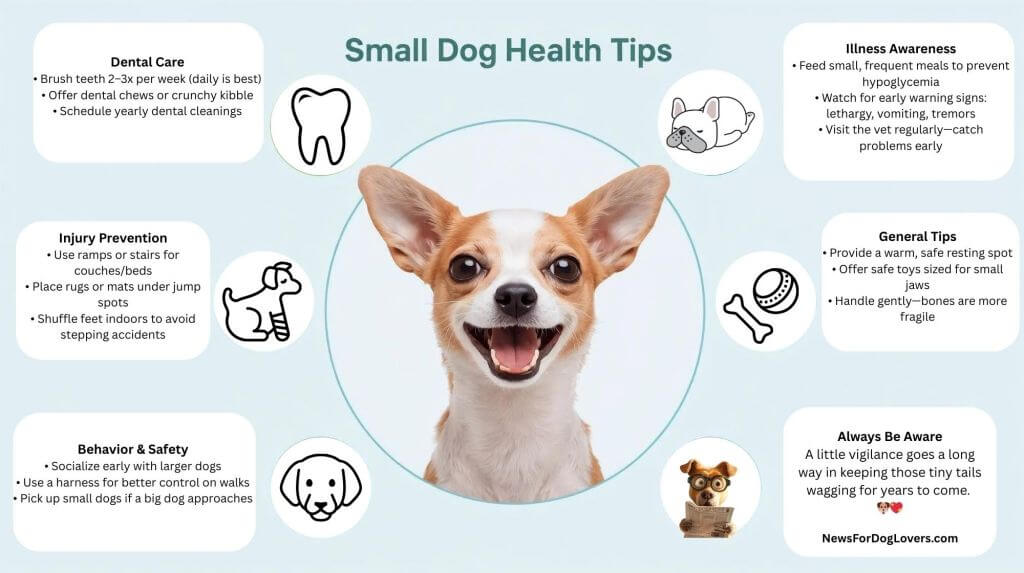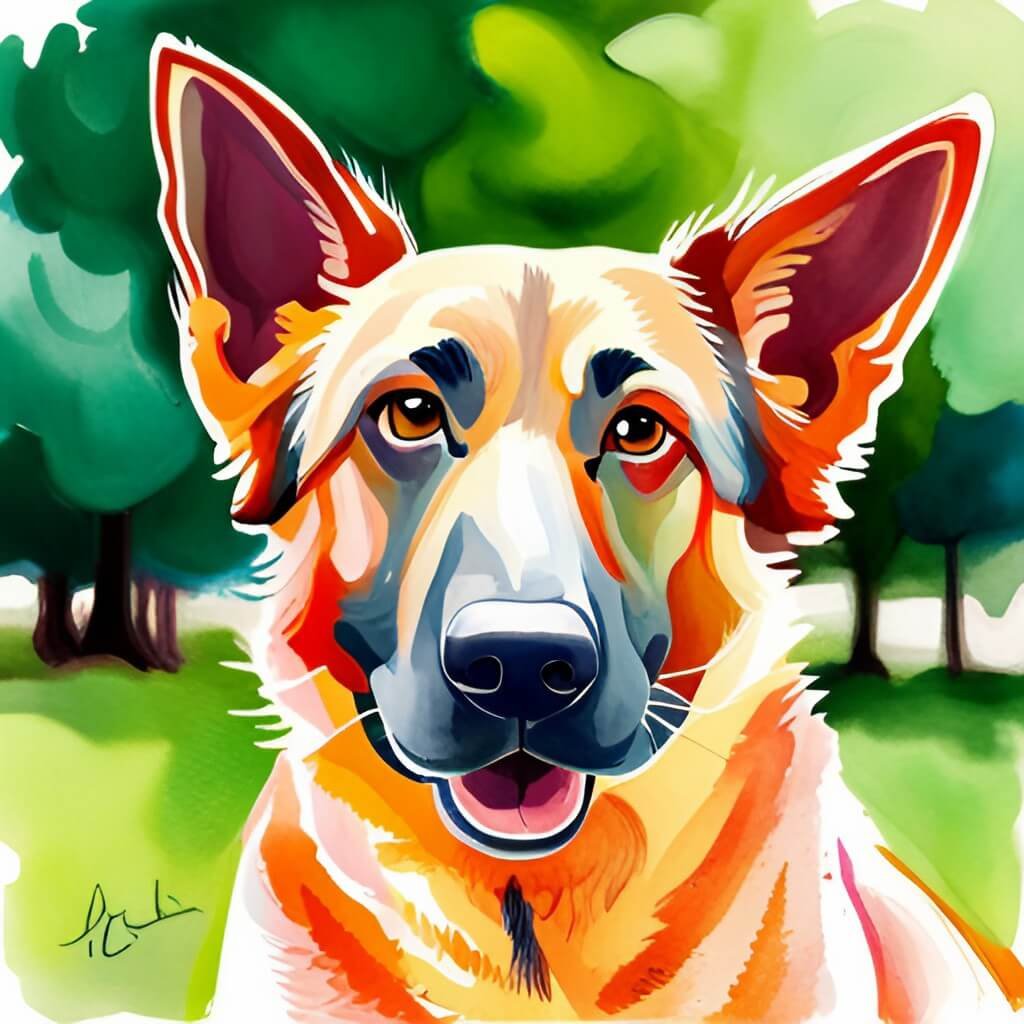While none of the following problems are exclusive to small dogs, they can be especially challenging for little breeds and their owners. Because small dogs have faster metabolisms, more delicate frames, and often bigger personalities packed into tiny bodies, their health concerns need extra attention.
🦷 Teeth and Gum Problems
Small breeds are notorious for dental disease. Their mouths are crowded with teeth, and when paired with a diet heavy in canned food or soft treats, plaque and tartar build up quickly. Untreated, this leads to tooth loss—but the risk doesn’t stop there. Oral bacteria can spread through the bloodstream, damaging the heart, liver, and kidneys.
Prevention Tips:
- Brush your dog’s teeth 2–3 times per week (daily is best).
- Offer crunchy treats, dental chews, or small-kibble dry food to help scrape away plaque.
- Schedule regular dental cleanings with your veterinarian.

🐾 “Small Dog Syndrome”
Many toy and small breeds think they’re giants at heart, barking at or even challenging dogs ten times their size. While it’s amusing, it can also be dangerous—one wrong move and your tiny pup could get seriously hurt.
Prevention Tips:
- Socialize your dog early, teaching calm behavior around other dogs.
- Use a harness instead of a collar for better control on walks.
- Don’t hesitate to pick up your dog when large, unfamiliar dogs approach.
💔 Injuries
Small dogs have fragile bones that can break from surprisingly minor accidents—jumping off the couch, falling from your arms, or being stepped on accidentally. Even rough play can result in injuries.
Prevention Tips:
- Place rugs or padded mats under furniture where your dog likes to jump.
- Train your dog to use pet stairs or ramps for getting onto beds or couches.
- Be mindful of where your dog is when walking—many owners learn to “shuffle” their feet instead of taking big steps to avoid mishaps.

🤒 Illness
Though small dogs often live long lives, illnesses can affect them more quickly. Their tiny systems don’t have much reserve, so viruses, bacterial infections, or stomach upsets can escalate fast.
One condition unique to smaller breeds is hypoglycemia (low blood sugar), especially in puppies and toy breeds. Symptoms include weakness, tremors, confusion, and even seizures. Without quick treatment, it can be life-threatening.
Prevention Tips:
- Feed your dog small, frequent meals, especially if they’re young or very small.
- Keep an eye on early warning signs—loss of appetite, lethargy, or vomiting can become serious quickly.
- Have your vet check your pup regularly to catch problems early.
Final Thoughts
Small dogs may look delicate, but with the right care they can live long, healthy, and spirited lives. Pay extra attention to dental health, protect them from injuries, and monitor for illness more diligently than you might with a larger dog.
A little vigilance goes a long way in keeping those tiny tails wagging for years to come. 🐶💖

✅ Small Dog Health Checklist
Dental Care
- 🪥 Brush teeth 2–3x per week (daily is best)
- 🦴 Offer dental chews or crunchy kibble
- 🧑⚕️ Schedule yearly dental cleanings
Injury Prevention
- 🛋️ Use ramps or stairs for couches/beds
- 🏠 Place rugs or mats under jump spots
- 🚶 Shuffle feet indoors to avoid stepping accidents
Behavior & Safety
- 🐕 Socialize early with larger dogs
- 🎯 Use a harness for better control on walks
- 🙌 Pick up small dogs if a big dog approaches
Illness Awareness
- 🍲 Feed small, frequent meals to prevent hypoglycemia
- 👀 Watch for early warning signs: lethargy, vomiting, tremors
- 🧑⚕️ Visit the vet regularly—catch problems early
General Tips
- 🛏️ Provide a warm, safe resting spot
- 🧸 Offer safe toys sized for small jaws
- 💖 Handle gently—bones are more fragile








